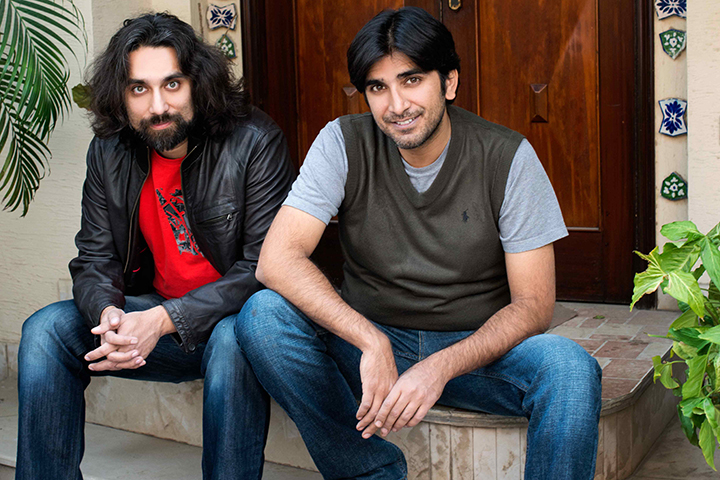
They’ve been compared to the Foo Fighters and accused of copying music but the fact remains that there’s really no one like Noori. The pop-rock band has a unique sound, knows how to fuel up a concert and has a huge fan following. They hit the music scene about 12 years ago with their debut album, Suno Ke Main Houn Jawan, and the success it received was colossal.
Since then, Noori has faced its highs and lows – the band started off with Ali Noor and Ali Hamza, two new members (Ali Jafri and Gumby) were later added, the band disbanded and later reunited to record their live album a few years ago. Today, it’s just Ali Noor and Ali Hamza but the fans have stood alongside their favourite pop band come any storm. Here, they take a moment and talk to us about what inspires them, their favourite musicians and a lot more.
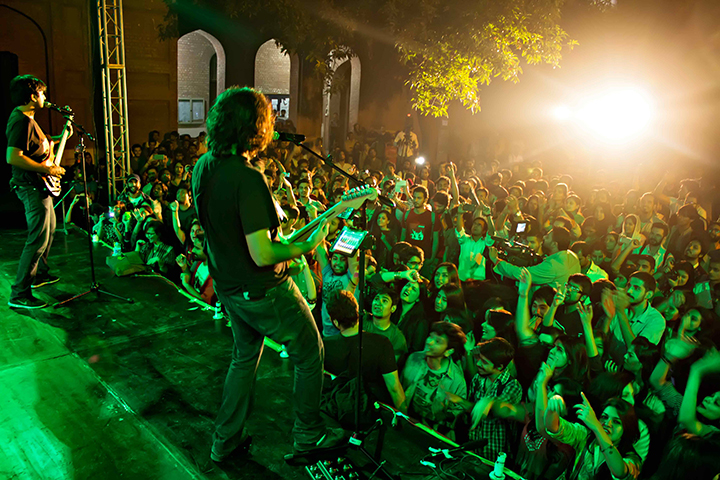
What inspires you when creating music?
Ali Noor: It can be many things but usually it’s some kind of story or event that I’ve read about in the newspaper or a movie that I’ve watched. I usually write about very personal things; issues about life outside of ourselves [the band]. What inspires us is the way things exist and how they impact the inside of ourselves.
Ali Hamza: When we make music, there are a lot of inspiring factors – it’s very difficult to pinpoint within the process. Every song has a different set of inspirations and stimuli.
Do you feel musicians need to have a uniqueness to their sound in order to survive?
AN: I think the sound that a band or musician develops over time is not something that happens very consciously. It’s sort of a subtotal of all the musical experiences you’ve had growing up and all through your life; you listen to various forms of music, and as you start evolving, you start becoming comfortable with a lot of things, musically. As time passes, people start relating with the kind of sound that you have – it’s a natural byproduct of that journey. People start calling it unique because that’s just the way you make your music. I just don’t think it’s right to say that, “OK, today, I’m going to try and create a unique sound to survive.” I just feel that if you want to survive, the most important thing is your originality, and that comes from being honest with what you want to say. This is what will ultimately lead you to having that unique sound.
AH: Every band has its unique sound; it is determined by the specific musicians who play their instruments in a certain way with a certain style. For the sake of a band’s survival, the uniqueness of their sound does help as people are able to associate it with the band. However, the band’s growth really depends on their ability to innovate and experiment.
Do you feel it’s easier for musicians to make a name today as opposed to back when you started? How has the industry evolved since then?
AN: It’s definitely much harder to make a name for yourself today. People have become a lot more distracted with so many events happening around them and the music industry doesn’t exist either. And when I say it doesn’t ‘exist’, it doesn’t mean people don’t make money out of music – it means that earlier there was a kind of expectation that people would take out time and listen to music; they would expect a new song from a musician/band. That is definitely no longer the case. That’s how it was when I was growing up. But I do believe that in today’s time, there are more opportunities and flexibilities when it comes to sharing your music. It’s just a matter of finding the right kind of mechanism with which you can connect with your fans; that’s the opportunity we got when we were coming out. I still believe that there are possibilities but they just need to be tapped into or figured out.
AH: I think it’s actually a lot easier to make a name today as opposed to earlier times because of the platforms and technology available. Everybody is always connected via the internet, and tools/software to compose music are readily available – this is something musicians lacked access to back in the day.
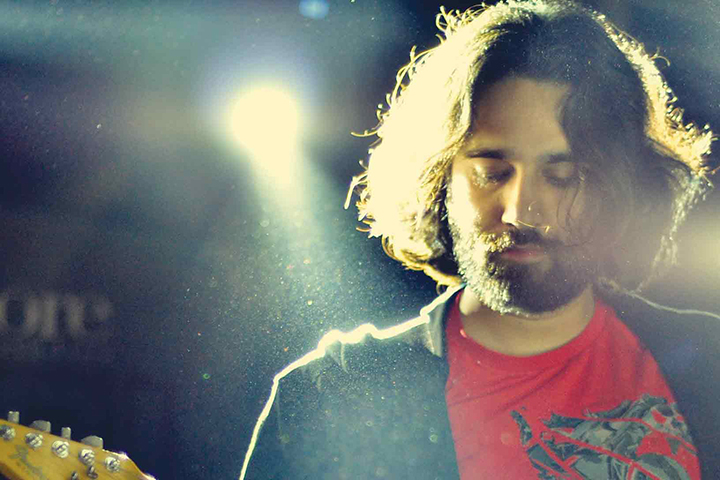
In your opinion, which current musician or musicians have a lot of potential?
AN: I feel there are a lot of artists who are coming up and have the potential to go much farther than we have come. They don’t have to deal with the problems we had to face when we first started out. SYMT is one band that I can relate with; they are songwriters, they make music themselves. That’s how we used to do it when we started to make music.
Who do you consider competition, and why?
AN: I have never functioned on a competitive basis in my life. It’s just something that doesn’t exist for me; I’ve never thought of music as a race or competition that I need to win. And to be honest, I don’t think there is any competition. Competition in our music industry probably means when someone takes your concert or certain spot. And we don’t function in that zone either.
AH: I am anti-competition; whether it’s competition in the education system, job market or anywhere else. I think it’s pretty ugly when competition turns into downplaying others or creating space for yourself to succeed. I have never believed in competition – it’s counterproductive.
Tell us about music you grew up listening to – which musicians have inspired you throughout your lives?
AN: Well, listening to music is a very important part of my life. I am always listening to music. In fact, I listen to music more than I actually make music! [Laughs] Initially, it was all about glam rock for me – that’s definitely what got me going. I remember watching Def Leppard’s video, Pour Some Sugar on Me, and I knew that this was something I wanted to do. Eventually, I also got interested in Skid Row, Faster Pussycat, Motley Crue, Poison and all that stuff. But what really inspired me musically was the grunge scene – Pearl Jam, Nirvana, Soundgarden and Stone Temple Pilots. I think that’s what we really connected with and that’s the kind of music we decided to make. Those were my formative years and that’s when we got a chance to learn the instruments and sing. Then I discovered Sting and Peter Gabriel – and what I truly enjoy listening to are female singers. I realised that I had a clear cut inclination to female vocalists and songwriters over male artists; Tori Amos, Sarah McLachlan, Fiona Apple, Florence and the Machine, Elli Goulding, etc. I feel like I have always been more inspired by them – I don’t know how much of that reflects in our music but female artists are way more exciting musically for me.
AH: I have grown up with a lot of variety – in music. My mother plays classical music and a brand new instrument which stretched the boundaries of music – it’s rediscovering the whole purpose of music. So I think that’s my core driving force; when I was told that music is not just a tool to entertain people but is a tool of triggering certain processes within yourself and others so you’re motivated to do better things in life. Then after that, I was exposed to eastern music, old Bollywood songs and folk. When I reached adolescence, Ali Noor’s influence of western rock music, jazz and funk all started to come into play. I’ve been exposed to different genres of music since I was four so I feel like that has helped me expand my appreciation of music – and all kinds, not just a specific type.
What do you do in your free time?
AN: I guess I’m free all the time. There’s no distinction between work and free time for us – that’s the price you have to pay for being a musician in Pakistan. You are only working when you have a concert coming up; you’re free the rest of the time. And you have to find work during that time.
AH: I am a free man and have a lot of free time but I try to keep myself busy and involved in life as much as I can. Ali Noor and I are very involved in our grandfather’s institute, Sanjan Nagar Institute of Arts and Philosophy – we take it as our passion. Even as far as Noori is concerned, it’s never been about making money – it’s always been about exploring our creativity. If I had gone the professional route, I would’ve been an economist and Ali Noor would’ve been a lawyer but we chose not to. We believe that life should be spent keeping oneself productive – mentally and physically. We are not bound to do anything, but free to do whatever we wish to do – it’s about having the freedom to choose. It’s an abstract I answer, but that’s how we live.
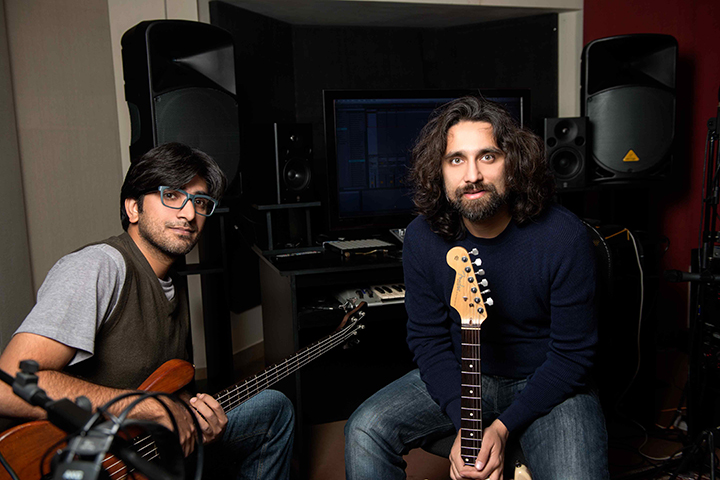
Why are you both called Ali?
AN: Our parents got it all mixed up I guess; they probably thought that sir names are supposed to come first. In fact, I don’t even have my own name. My father is called Ali Kazim and my mom is Noor Zehra so they made ‘Ali Noor’ out of it. And Ali Hamza just seemed like a nice name so I guess that’s why they named him that.
Tell us about one of your favourite venues where you have performed.
AN: We’ve performed in numerous places and it’s quite hard to actually pinpoint one special venue. The first few performances that we had, however, that we remember very vividly were at Alhamra [Art Center]; those performances were a lot of fun, and it’s because it was the first place where we got the chance to perform.
AH: Every venue has its own charisma. In fact, it’s the audience too – where there’s a great audience, that’s where the magic happens. At the same venue, we’ve had a great audience at a time, and at a later date, the audience wasn’t so interactive. So it really just depends on that, too. However, there is this one place that I remember – The Rock Musicarium in Islamabad. That’s where we recorded our first live album. It was a memorable experience.
When is your next album coming out and what should your fans expect?
AN: The next album is coming out very soon and we have finally started working on it. Our fans should expect that we are still at it and we are trying to make it happen because this place isn’t very conducive. It’s hard to focus on something in a time when there’s no industry. Today, an album is genuinely a labour of love and it’s getting harder and harder to produce songs. So whenever we do, I think it’s a great achievement in itself.
AH: Our fans have become really cynical about us not taking an album out – and it’s not like we’ve said it out loud or announced that we are taking an album out on a certain date. We are trying to create something but still need a little more time.
Do your kids know they have celebrity parents; how do you protect them?
AN: We don’t function like celebrities – we don’t think we are celebrities. We don’t even think that Pakistan has an industry where celebrities exist like they do in other countries. Or at least not in our field, so the children are pretty much comfortable. Every once in a while, someone will come and ask for an autograph or a picture. It makes them really happy, and my elder daughter says she wants to be a rock star too!
AH: We are pretty normal people – there’s actually nothing to protect. My kids are too young but Ali Noor’s eldest daughter Sanjana has now reached an age where she is aware that her father is a celebrity. We were at a restaurant once and I remember her asking her dad, “Baba, why aren’t people recognising you – aren’t you supposed to be famous?” [Laughs] But we told her that not everyone recognises us. She said, “OK, but when I grow up, I will be recognised everywhere because I’ll be the biggest rock star!”
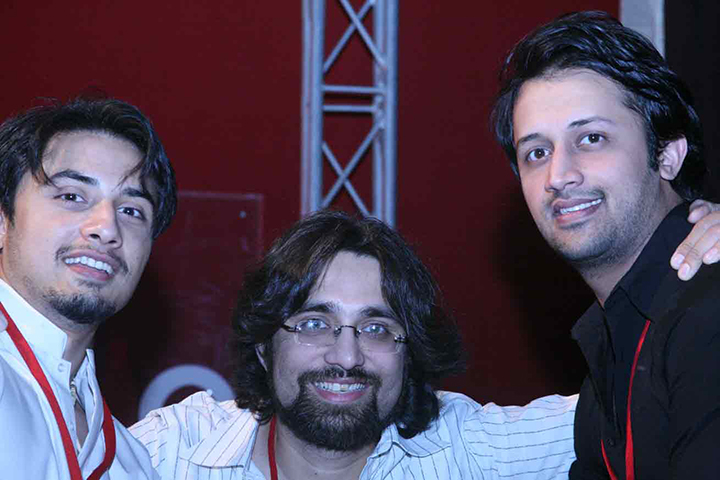
What’s the secret to your success?
AN: I don’t think I’m successful [Laughs] and I don’t think there’s any secret because there are no secrets if you’re successful; success is just a by product of your journey and to me, success would be just not dying or getting completely destroyed in a journey that is specifically a hard one. If there’s a secret, I think it’s just to keep going and not giving up.
AH: The secret to my success is to learn from failures, not from the successes. It’s actually far more important to use your failures as your real teachers rather than your successes. The latter are the extra bits that get you started on your journey but what’s important is learning from the mistakes you make.
Lahoris are known to be big foodies; do you conform to the trend?
AN: Absolutely! If there’s any addiction that I have, it’s eating and I am obsessed with food. I need to have food – it has a very hefty toll on my health and on my ability to look lean and thin but unfortunately being Lahori means you have to pay a very hefty price and I guess I’m very proud of it because that’s what the ultimate happiness is for me.
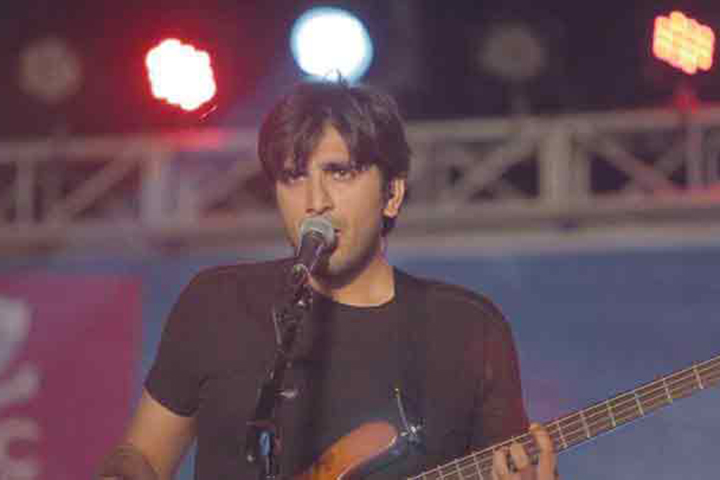
VERY QUICKLY…
Favourite travel destination?
AN: Abbottabad
AH: All the northern areas of Pakistan – Gilgit Hunza
If you weren’t a musician, you would be?
AN: A lawyer
AH: An academic
What would we find on your bedside table?
AN: Water, tissue box and my phone
AH: Bedside lamp with pens, a glass of water and a packet of cigarettes
All time favourite song?
AN: All This time by Sting
AH: None
Favourite cuisine?
AN: Chinese
AH: Pakistani
Favourite musician?
AN: These days, it’s definitely Ellie Goulding
AH: Tori Amos, Pathanay Khan, S.D. Burman, Hemant Kumar, Giants, Beethoven and Vivaldi
![]()
INTERVIEW: SHEZREH MIRZA & EIMAN MASROOR
PHOTOGRAPHS: FAISAL FAROOQUI











































